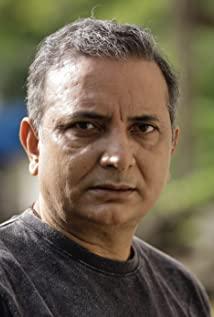"Toilet Hero"
The film begins with a group of Indian women carrying lamps and urinals to the field for "convenience". The women talked and laughed along the way, and the atmosphere was very relaxed, as if they were going on an outing in a group. When they walked to the bushes and squatted together, a man drove by and deliberately shone his headlights into the bushes.
During the day, a man driving a car ran after two women and joked. Our heroine Jaya picked up the pumpkin in her hand and threw it at the hater's head.
The male protagonist Keshav is an ordinary person who runs a bicycle shop, and the female protagonist Jaya is an upper-class person who has received a higher education. I won't go into details on how they met, fell in love and got married.
On the first night of marriage, the women of the Urinal Committee knocked on the windows and invited Jaya to the toilet. Only now did Jaya realize that there was no toilet at home. She followed the women down the road without saying a word, and finally, as if she suddenly realized something, she threw the urinal in an emotional state, returned home, and asked Keshav to build a toilet.
The war on toilets begins
The next day, when Keshav explained his day's itinerary to his father, he mentioned the plan to build a toilet lightly, and his father was furious. Because he firmly believes that religion does not allow toilets to be built in the home.
On one side is a disgruntled wife and on the other an angry father.
So Keshav started researching "stop-and-go"
1. Let Jaya find an excuse to go to someone else's house to go to the toilet. Jaya felt like she was a thief.
2. Keshav decides to accompany Jaya to the toilet in the wild. But it was accidentally seen by the passing father. Jaya was furious when his father fell off his motorcycle in fright.
From here, the wife and father begin to confront each other head-on.
The male protagonist started complaining to his friends about "marrying a troublesome wife who went to school".
3. Keshav decided to use the 7-minute train stop to let his wife use the "gender-neutral toilet" on the train. Until one time, Jaya was trapped in the train and could not get off. Keshav chased him all the way on a motorcycle, but Jaya did not jump off the train, but took the train back to his parents' home.
It seems that Jaya has been raising the issue of the "toilet" and Keshav is trying to figure out a way to fix it. In fact, they are both accommodating each other. They are both trying to fit into each other's lifestyles. I don't think Jaya and Keshav have formed an alliance at this time. At the moment Keshav seems to be driven only by love, and he sees the need to build toilets simply because his wife has a different way of life.
During this time, local reporters wrote a story about Keshav and Jaya's separation over toilets, and their affair was seen as scandalous in this small village that hasn't divorced in 1,700 years. Keshav beat the reporter violently, and later the reporter also became the male lead's helper, of course, this is another story.
The first turning point was before the Holi festival. Keshav came to Jaya's house, hoping to pick her up, but unexpectedly heard the heroine's opinion on fighting for the toilet. At that time, Jaya's mother blamed the heroine for making a fuss and asked her to go back to her husband's house immediately. At this time, the heroine's father spoke first: "Jaya is right. There was a village where the girls were going to the toilet outside and were raped, and their bodies were hanging on the trees"... This greatly touched Kesha husband. After that, Keshav gave up the "quick fix" and started fighting for toilets.
Jaya is also working hard. She found information about the corruption of the government's 2.9 billion toilets on the Internet, handed it over to Keshav, and supported it in her own way.
Keshav handed over the documents to the authorities, but was told it would take 11 months to complete the process. Keshav couldn't wait so long. He first went to steal a mobile toilet. After failing, he built a toilet in his yard against the opposition of his father and villagers. A picture of the Taj Mahal hung on it, indicating that it was for his wife. The Taj Mahal built (laughs). But it didn't take long for the newly built toilet to be demolished by a group of villagers.
The struggle between Keshav and Jaya seems to be going nowhere.
The second turning point came: Jaya called to ask for a divorce.
PIL (public interest litigation)
This is a strategy that I prefer to explain with the concept of "impact suits". "Influential lawsuits" refer to those cases whose value exceeds the direct appeal of the parties in this case, and can greatly promote similar cases, improve legislation, judicial improvement and social management system, and change people's legal awareness.
Jaya and Keshav decide to divorce. Jaya said they would get a divorce if there were no toilets.
Divorce because of the toilet, which caught everyone's attention. They initially planned a fake divorce, hoping to accelerate the change through the power of the media. But until the day before the lawsuit, there was still no big change. Keshav intends to get Jaya to withdraw her divorce petition, but Jaya feels the battle will be lost if she abandons her request for a toilet.
At this time, Keshav understood that fighting for the toilet was not just for love, he also had the responsibility to continue fighting.
very emotional
The ending is very simple. In front of the cameras of reporters, women from all over the world held up signs to express their demands. The women of the urinal committee began to fight. They told their husbands that "if there is no toilet, they will divorce" and went to the court to express their support. Jaya. The village chief and some men are still talking to the camera, "Building a toilet is to defile the gods" and so on.
In the end, the court rejected Jaya's application for divorce because toilets were to be built in the village.
Looking back now, there was a lot of necessity and a lot of chance that contributed to the change.
Jaya's house has a toilet and her family is highly educated, so Jaya will have such an idea and her family will support her.
In order to get married, Keshav asked someone to give Jaya a religious thumbs up with ginger. Then it is not difficult to understand that he can insist on building toilets later.
The report of "the husband and wife feuding over the toilet" appeared by accident, and it was also accidental that a large number of reporters followed up on Jaya and Keshav's divorce proceedings.
Dad's transformation was accidental. Because grandma fell, Dad had no choice but to carry grandma to the smashed toilet in the yard. Dad in this shot, all the muscles on his face are shaking.
The transformation of the women of the "urinal committee" was also accidental. They squatted together, as before. One second they were still saying, "Jaia must be squatting happily in her own toilet now." The next second, a voice appeared: "What about us?" The committee members were silent.
The upper-level officials read the report and ordered the toilet doors of the seven departments to be locked, which was accidental. Haha, it can be said that s is a top-down performance art. "Only when personal interests are violated do people think about solving problems."
All contributed
In Zhu Xixi's words, "this is not another fairy tale in which a hero has changed the world, but a process of action and reflection from one person to more people ."
That's why I like "Toilet Hero" more than "Daddy" and "Mystery Superstar". Everyone's status and position are different, but they have done what they can, plus a little chance, to bring about change.
some digression
A. The role of religion in it
An interesting detail is that Keshav made a proposal to build a public toilet in the village at the village council. Of course it was opposed by everyone. The village chief also recited a scripture written in Sanskrit. The subtitles did not mean to translate the scriptures. He guessed that building a toilet would pollute the gods.
When the village chief quoted the scriptures, the devout believers kept nodding their heads.
But Keshav asked the village chief, "I guess you don't know how to memorize the next scripture." Then Keshav recited a passage of scriptures, and the subtitles also did not give a translation, but according to the village chief's reaction, he could I saw that the village chief was beaten in the face in seconds.
What does this indicate? First, the reading of scriptures should not be taken out of context. Second, those who have the power to interpret the scriptures also have power.
Similar things have happened in history. Originally the Bible was written in Hebrew, and only a few people could "understand" the Bible. So this minority has the power to interpret the scriptures. The Bible was later translated into other languages, thus partially eliminating the possibility of being endorsed.
B Regarding the religious situation and caste system in India, it is worth studying hahaha but I am lazy.
C about Holi. There are many legends, roughly saying that this is a festive festival of welcoming spring, forgiveness and forgiveness. In the film, on the day of Holi, women beat the shields on the backs of men with wooden sticks. Does this mean that these women can only rebel against their husbands during the Holi festival (doesn't it mean that the wives are usually beaten).
D In fact, there are also toilet heroes in China. In February 2012, several female college students in Guangzhou staged a performance art of "Occupying the Men's Restroom" in a public toilet. They hope to draw the attention of the government and society to the problem of uneven toilet seats between men and women, and eliminate the phenomenon of women queuing for toilets in public places.
so you see
If you do nothing, nothing will be changed
Everyone should be an activist.
Introduction to "Wrestle, Dad" and "Mystery Superstar"
Both Daddy and Mystery also focus on Indian women, mainly criticizing arranged marriages and the phenomenon of women being "arranged". They're both feminist, but in different ways.
A. "Wrestle, Dad"
"Wrestling Dad" tells the story of a father, a former national wrestling champion, who stumbles upon his daughters' talent for "fighting" and then "forces" them to train to become professional wrestlers. In fact, the daughters were reluctant to practice wrestling at first, but only because of their father's insistence (that is, the pressure from their father). Therefore, the father's behavior of "getting rid of the traditional girl's way of life" was not a conscious resistance of the daughters at the beginning. Until one time, the daughters secretly skipped training to attend the wedding of a girl of the same age, and learned from the bride's mouth that she could foresee the future of being forced to marry. In order to get rid of such a fate, the girls took part in wrestling training wholeheartedly.
So some people wonder if the "feminism" embodied in "Falling Dad" really empowers girls, but I still think the film points to the possibility of women taking careers that don't conform to gender stereotypes, and there is progress meaningful.
As an aside, the reason why some women joined the revolution during the Republic of China was to escape from arranged marriages.
Hahaha some people will think that sports stars should have descendants to "inherit the mantle". Former NBA star Kobe has three daughters, and fans are ridiculing that the Black Mamba has no successor. ? ? ? The absurdity here is obvious.
B. "Mysterious Superstar"
This is the story of a gifted girl who realizes her musical dreams. This time, the father, who is an engineer, is the villain, and he does everything he can to prevent his daughter from appearing in the competition, hoping that she will get married. But this time the girl got more help. First, her mother pawned her jewelry and bought her a computer. Coupled with her amazing talent, the girl tried her hand at the social network. Later, her little boyfriend and singer helped her make records. During this time, her reclusive mother and younger brother provided her with vital assistance in protecting her musical dreams from being destroyed by her father. Towards the end of the film, the mother gave in to her father, and the girl gave up the fight, leaving only her beloved guitar by her side.
The climax of the film is also the mother's first resistance. All the mother did before was to protect her daughter's musical dream (keep the guitar for her daughter), but the father threw the guitar in the airport because he was unwilling to pay the extra shipping fee. garbage can. This time, the mother no longer held back, signed the divorce papers, and took her daughter out of the airport.
In this story, the girl is gifted, always knows what she wants, and acts wisely with the help of her allies, but she has to compromise. The mother's "determination to resist" is very accidental. If it wasn't for the daughter's guitar that happened to be an extra piece of luggage, the story might not have happened.
The above two films are narrated within the scope of the family, and finally rose to the social level (the daughter becomes the wrestling champion, the daughter participates in the award ceremony).
View more about Toilet: A Love Story reviews











